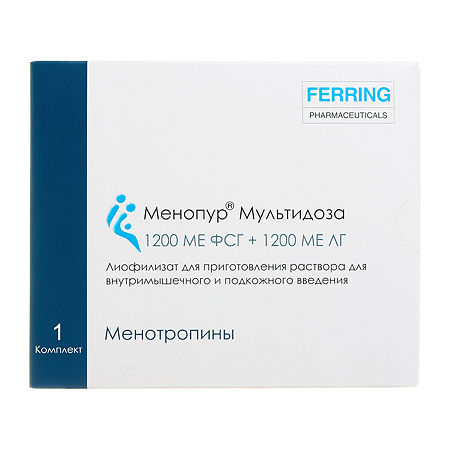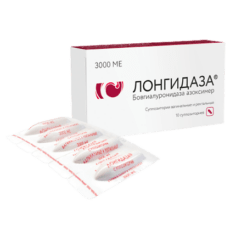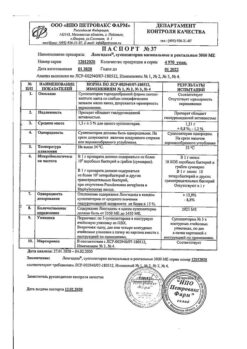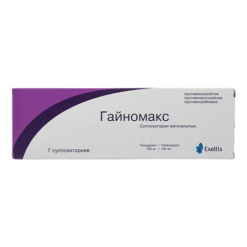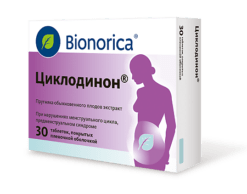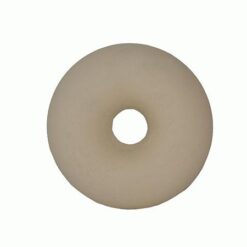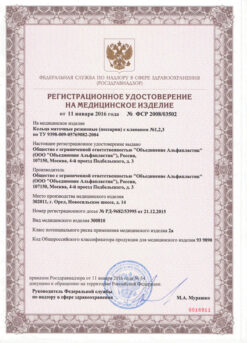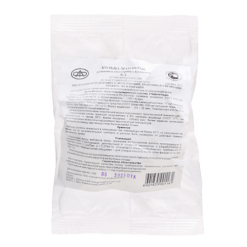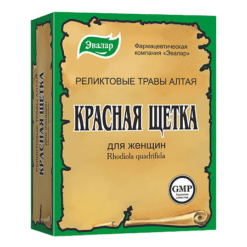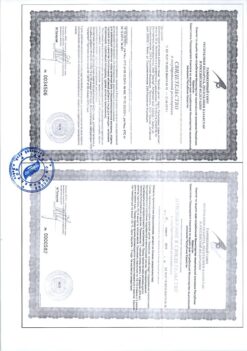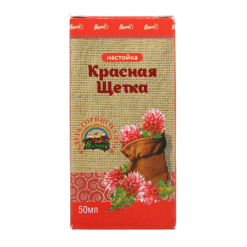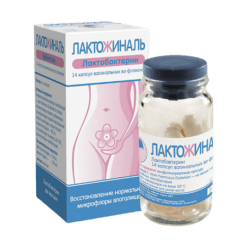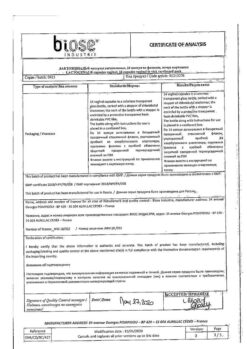No products in the cart.
Menopur Multidose, lyophilizate 1200 me fsg+1200 me lg
€1.00
Out of stock
(E-mail when Stock is available)
EAN: 7640128547679
SKU: 288991
Categories: Gynecology and Obstetrics, Infertility treatment IVF, Medicine
Description
In women:
– Anovulation (including polycystic ovarian syndrome (PCOS) when clomiphene therapy is ineffective).
– Controlled ovarian hyperstimulation for the induction of multiple follicle growth in assisted reproductive technology (BPT).
In men:
– Stimulation of spermatogenesis in azoospermia or oligoasthenospermia due to primary or secondary hypogonadotropic hypogonadism (in combination with preparations of human chorionic gonadotropin (hCG).
Indications
Indications
For women:
• Anovulation (including polycystic ovary syndrome (PCOS) when clomiphene therapy is ineffective).
• Controlled ovarian hyperstimulation to induce the growth of multiple follicles during assisted reproductive technologies (BPT).
For men:
• stimulation of spermatogenesis in azoospermia or oligoasthenospermia caused by primary or secondary hypogonadotropic hypogonadism (in combination with human chorionic gonadotropin (hCG) preparations).
Pharmacological effect
Pharmacological effect
Pharmacotherapeutic group:
Special instructions
Special instructions
Treatment should be carried out under the supervision of a doctor experienced in treating infertility.
The first injection of the drug should be performed under the direct supervision of a physician.
Before prescribing Menopur® Multidose, the condition of the ovaries should be assessed using ultrasound or the concentration of estradiol in the blood. During the entire course of treatment, these studies should be carried out daily or every other day. Careful monitoring of the patient’s condition is an integral part of the treatment.
Before starting to use the drug Menopur® Multidose, it is recommended to conduct an examination to identify hypothyroidism, adrenal insufficiency, hyperprolactinemia, tumors of the pituitary gland or hypothalamus; as well as appropriate specific treatment.
OHSS
OHSS is a syndrome distinct from uncomplicated ovarian enlargement, the manifestations of which depend on the severity. It involves significant ovarian enlargement, high serum estrogen concentrations, and increased vascular permeability, which can lead to fluid accumulation in the peritoneal, pleural, and, rarely, pericardial cavity. In severe cases of OHSS, symptoms include abdominal pain, bloating, significant ovarian enlargement, weight gain, shortness of breath, oliguria, and gastrointestinal symptoms including nausea, vomiting, and diarrhea. On clinical examination, hypovolemia, hemoconcentration, electrolyte disturbances, ascites, hemoperitoneum, exudative pleurisy, hydrothorax, acute respiratory distress and thromboembolic complications are possible.
Excessive ovarian response to gonadotropin administration rarely leads to the development of OHSS unless hCG is administered to stimulate ovulation. Therefore, in case of ovarian hyperstimulation, hCG should not be administered, and the patient should be warned to abstain from sexual intercourse or use barrier methods of contraception for at least 4 days. OHSS can progress rapidly (over 24 hours to several days) to become a serious medical complication, so patients should be monitored for at least 2 weeks after hCG administration. Compliance with the recommended doses of Menopur® Multidose, the administration regimen and careful monitoring of therapy can minimize the incidence of ovarian hyperstimulation and multiple pregnancies. When performing ART, aspiration of the contents of all follicles before ovulation can reduce the risk of developing OHSS.
OHSS may be more severe and protracted as pregnancy progresses. Most often, OHSS develops after cessation of treatment with gonadotropins and reaches maximum severity within 7-10 days after the end of treatment. OHSS usually resolves spontaneously after the onset of menstruation.
If severe OHSS develops, the patient is hospitalized and specific therapy is started.
OHSS occurs with high frequency in patients with polycystic ovary syndrome.
Multiple pregnancy
Multiple pregnancies are associated with an increased risk of adverse maternal and perinatal outcomes. When using menotropins, multiple pregnancies develop more often than with natural conception. In the case of in vitro fertilization (IVF), the likelihood of a multiple pregnancy depends on the number of embryos introduced, their quality and the age of the patient. The patient should be warned about the potential risk of multiple pregnancy before starting treatment.
Complications of pregnancy
The frequency of spontaneous abortions during pregnancy occurring after treatment with Menopur® Multidose is higher than in healthy women.
Ectopic pregnancy
With a history of fallopian tube diseases, both during natural conception and during infertility treatment, women have a high risk of ectopic pregnancy. The prevalence of ectopic pregnancy after IVF is 2 to 5%, compared to 1 to 1.5% in the general population.
Neoplasms of the reproductive system
There have been reports of neoplasms of the ovaries and other organs of the reproductive system, both benign and malignant, in women who have undergone multiple drug regimens for the treatment of infertility. It has not yet been established whether treatment with gonadotropins increases the baseline risk of these tumors in infertile women.
Congenital defects
The prevalence of congenital malformations of the fetus using ART is slightly higher than with natural conception. It is believed that this may be due to the individual characteristics of the parents (mother’s age, sperm characteristics) and multiple pregnancies.
Thromboembolic complications
Women with known risk factors for thromboembolic complications, such as individual or family history, obesity (body mass index > 30 kg/m2) or thrombophilia, may have an increased risk of venous or arterial thromboembolic complications during or after treatment with gonadotropins. In such cases, the benefit of their use must outweigh the risk. It should be borne in mind that pregnancy itself also increases the risk of thromboembolic complications.
In men with high concentrations of FSH in the blood (indicative of primary hypogonadism), Menopur® Multidose is usually ineffective.
Impact on the ability to drive vehicles and machinery
Studies of the effect of menotropins on the ability to drive vehicles and machines have not been conducted. Menopur® Multidose does not affect the ability to drive vehicles and operate machinery.
Active ingredient
Active ingredient
Menotropins
Composition
Composition
1 bottle of lyophilisate contains:
Contraindications
Contraindications
Hypersensitivity to menotropins and other components of the drug; tumors of the pituitary gland or hypothalamus; decompensated hypothyroidism, adrenal insufficiency, hyperprolactinemia; children under 18 years of age.
For women:
• persistent enlargement of the ovaries, ovarian cysts (not caused by polycystic ovary syndrome);
• abnormalities in the development of the genital organs, incompatible with pregnancy;
• uterine fibroids, incompatible with pregnancy;
• bleeding from the vagina of unknown etiology;
• estrogen-dependent tumors (ovarian cancer, uterine cancer or breast cancer);
• high concentration of FSH in primary ovarian failure;
• pregnancy and breastfeeding period.
For men:
• androgen-dependent tumors (prostate cancer, testicular tumor).
If you have one of the listed diseases, be sure to consult your doctor before taking the drug.
Use caution if there are risk factors for thromboembolism, such as individual or family history, obesity (body mass index > 30 kg/m2) or thrombophilia.
Side Effects
Side Effects
The most serious and common adverse reactions observed with Menopur in clinical studies with an incidence of up to 10% were OHSS, abdominal pain, headache, injection site reactions and injection site pain. The main adverse reactions identified in clinical studies are listed in the table below.
Organs and systems
Often (>1/100 and 1/1000 and <1/100)From the gastrointestinal tract, abdominal pain, nausea, flatulence
General disorders and disorders at the injection site: pain, redness, swelling or itching at the injection site, arthralgia very rare: with long-term use of the drug it is possible
antibody formation
Interaction
Interaction
The drug should not be mixed in the same syringe with other medications!
Overdose
Overdose
Cases of overdose are unknown, however, in such situations, the development of OHSS should be expected, which becomes clinically pronounced after the administration of hCG drugs and is manifested by the formation of large ovarian cysts. At the first signs of hyperstimulation – abdominal pain, space-occupying formations in the lower abdomen palpated by a doctor or determined by ultrasound, nausea, vomiting, hemoconcentration, electrolyte imbalance – treatment with gonadotropins should be stopped immediately!
Storage conditions
Storage conditions
At a temperature of 2-8 °C.
Shelf life
Shelf life
3 years.
Manufacturer
Manufacturer
Ferring GmbH, Germany
Additional information
| Shelf life | 3 years. |
|---|---|
| Conditions of storage | At a temperature of 2-8 ° C. |
| Manufacturer | Ferring GmbH, Germany |
| Medication form | lyophilizate |
| Brand | Ferring GmbH |
Related products
Gynecology and Obstetrics
Gynecology and Obstetrics
Buy Menopur Multidose, lyophilizate 1200 me fsg+1200 me lg with delivery to USA, UK, Europe and over 120 other countries.

